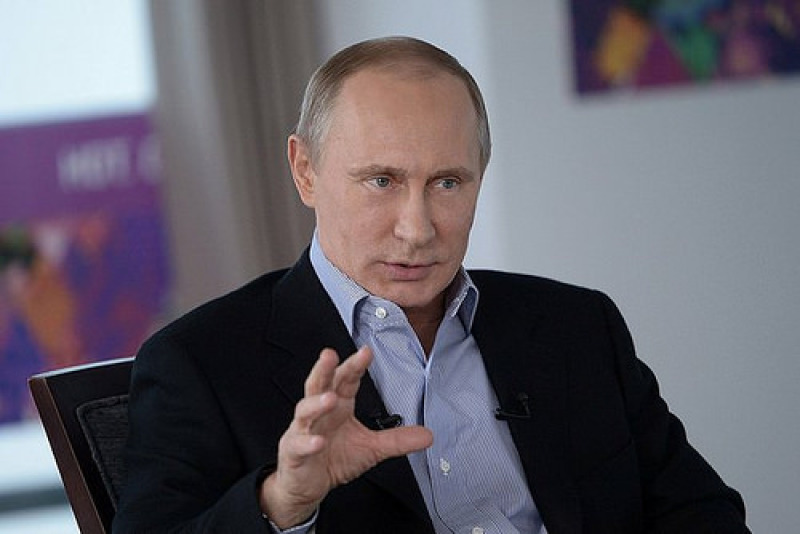
President Vladimir Putin is ramping up his attack on Ukraine by ordering Russian nuclear forces to be on "high alert" on Sunday just as Ukrainian President Volodymyr Zelenskyy agreed to begin peace talks with Russia.
Putin claims NATO's "aggressive statements" and tough financial sanctions have pushed him to issue a directive to position Russia's nuclear weapons in the event of further conflict escalation.
According to the Associated Press, Putin is "potentially putting in play forces that, if there's a miscalculation, could make things much, much more dangerous," a senior U.S. defense official said, under the condition of anonymity. Putin's decision to declare Russian nuclear forces on "high alert" on Sunday raised fears all over the world that the Ukraine conflict would turn into a nuclear war.
But amid Putin's response to NATO's "aggressive statements," Western countries have come out to denounce his attack on Ukraine and pledge to purchase and deliver weapons to teh embattled country. Such artillery include stinger missiles for shooting down helicopters and other aircraft.
Meanwhile, Zelenskyy's office has agreed to start peace talks with Russia on Sunday. The Ukrainian leader spoke with Belarus' Alexander Lukashenko and agreed to send a delegation to meet at the Belarusian-Ukrainian border near the Pripyat River. He said that the peace talks would be held "without preconditions," DW reported.
Belarus' Lukashenko on the other hand assured Zelensky that "all planes, helicopters and missiles stationed on Belarus territory will remain on the ground during the travel, negotiations and return of the Ukrainian delegation."
In a televised address on Sunday, Putin declared, "I order the defense minister and the chief of the general staff of the Russian armed forces to put the deterrence forces of the Russian army into a special mode of combat service." This was the aggressor's response to NATO's "aggressive statements" after Russia engaged in battles in Ukraine's second-largest city, Kharkiv, as well as other strategic ports in the southern part of the country.
On late Sunday, Russian forces took hold of Berdyansk, a city with 100,000 people on the Azov Sea coast.
Meanwhile, the European Union and its 27-nation bloc have established plans to prohibit Russian airlines from flying in their airspace. European Commission President Ursula von der Leyen has also announced that the EU will "finance the purchase and delivery of weapons and other equipment to a country that is under attack" and will ban some pro-Kremlin media outlets.
CNN reported on Sunday that the White House has condemned Putin's decision to declare Russian nuclear forces on "high alert" in response to NATO's "aggressive statements." White House press secretary Jen Psaki described Putin's actions as a "a pattern" of "manufacturing threats that don't exist in order to justify further aggression." A senior Biden administration called it a "yet another escalatory and totally unnecessary step."
"[Putin] was never under threat from Ukraine or from NATO, which is a defensive alliance that will not fight in Ukraine," the Biden administration official said, highlighting how the Russian leader kept making up threats "to justify more aggressive actions."
Meanwhile, NATO Secretary General Jens Stoltenberg described Putin's statements and actions as a "very aggressive rhetoric " and described his behavior as "irresponsible."


























